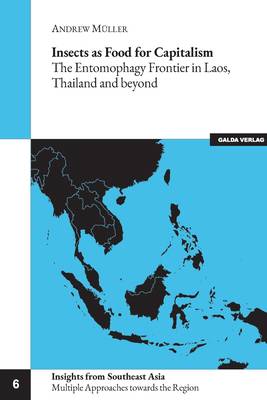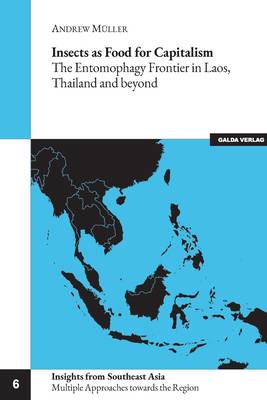
- Afhalen na 1 uur in een winkel met voorraad
- Gratis thuislevering in België vanaf € 30
- Ruim aanbod met 7 miljoen producten
- Afhalen na 1 uur in een winkel met voorraad
- Gratis thuislevering in België vanaf € 30
- Ruim aanbod met 7 miljoen producten
Zoeken
€ 58,45
+ 116 punten
Omschrijving
Are insects the food of the future, alleviating world hunger and ecological issues? In this book, based on extensive field research in Laos and Thailand, the author suggests otherwise. He describes local transformations in 'entomophagy' and explores differences between South East Asian and Western food cultures before presenting a deconstruction of the widespread 'insect solution narrative'. Empirical observations are discussed mainly in the light of the World-Ecology approach, seeing the exploitation of humans and nature as inextricably intertwined. The main argument targets the commodification of edible insects and related resources, denoted by the central concept of the 'entomophagy frontier'. Unfolded along the lines of the distinction between wild-collected and farmed insects, it holds that the emerging entomophagy industry tends to reinforce the problems it addresses by ignoring their structural causes: social inequality, systemic unsustainability and ultimately the insatiability of capitalism. ABOUT THE SERIES Developments in the field of area studies - goaded by the analytical deconstruction of world regions from their geopolitical sense - have deeply affected the knowledge production from societies and cultures located in the politicized compartmentalization of the globe. With this series, the editors and authors wish to contribute to a reformulation of sensibilities in area studies which emphasizes the epistemic value of contextualized knowledge production. Starting with the notion of Southeast Asia, books published in this series will contribute to a more nuanced understanding of regionality based on a multidisciplinary approach. The series represents an outlet for young scholars intending to publish their degree theses; and for established scholars who are looking for a place to republish out-of-print books. We also encourage scholarly collectives from the regions to publish collaborative works or edited volumes on topics that usually will not attrac
Specificaties
Betrokkenen
- Auteur(s):
- Uitgeverij:
Inhoud
- Aantal bladzijden:
- 224
- Taal:
- Engels
- Reeks:
- Reeksnummer:
- nr. 6
Eigenschappen
- Productcode (EAN):
- 9783962032036
- Verschijningsdatum:
- 12/06/2022
- Uitvoering:
- Paperback
- Formaat:
- Trade paperback (VS)
- Afmetingen:
- 156 mm x 234 mm
- Gewicht:
- 317 g

Alleen bij Standaard Boekhandel
+ 116 punten op je klantenkaart van Standaard Boekhandel
Beoordelingen
We publiceren alleen reviews die voldoen aan de voorwaarden voor reviews. Bekijk onze voorwaarden voor reviews.











